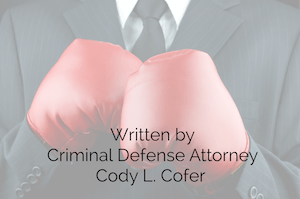Texas Second Court of Appeals in Fort Worth, TX
The Texas Constitution Article V creates the judicial branch of Texas government. The Constitution specifically references “Court of Appeals,” but the number and composition of the courts is left to the Texas Legislature to determine.
The Second Court of Appeals was originally created by the Legislature in 1891. The original three “intermediate appellate courts” were Number 1 (Galveston), Number 2 (Fort Worth), and Number 3 (Austin). At that time, these courts did not have criminal jurisdiction, and criminal appeals went directly to the Texas Court of Criminal Appeals. However, in 1981 these intermediate appellate courts were vested with jurisdiction in criminal appeals (other than death penalty cases). Tex. Const. Art. V § 6.
Who makes up the Second Court of Appeals?
Every court of appeals has a Chief Justice and two or more other Justices. The Second Court of Appeals is made of a chief justice and of six justices holding places numbered consecutively beginning with “Place 2.” To be eligible to serve as a justice on the Second Court of Appeals a person must:
- Be licensed to practice law in Texas;
- Be a citizen of the United States;
- Be a citizen of Texas;
- Be at least thirty-five years old;
- Be a practicing lawyer or judge (in a court of record) for at least a combined ten years.
The justices are elected in the Texas general election by voters in the Court’s judicial district. Each justice is elected for a term of six years.
| Position | Name | Took Bench | Legal Specialization |
|---|---|---|---|
| Chief Justice | Terrie Livingston+ | 1994 | None |
| Place 2 | Bill Meier | 2008 | None |
| Place 3 | Anne Gardner | 2000* | Civil Appellate Law |
| Place 4 | Bonnie Sudderth | 2015* | Civil Trial Law and Personal Injury Trial Law |
| Place 5 | Sue Walker | 2001 | Civil Appellate Law |
| Place 6 | Lee Ann Dauphinot | 1995 | Criminal Law and Criminal Appellate Law |
| Place 7 | Lee Gabriel | 2010* | Criminal Law |
| *Initially appointed by the Governor. | |||
Current Election for Place 3 | Second Court of Appeals
Justice Anne Gardner is not seeking reelection. So, the seat for Place 3 has drawn five candidates seeking the Republican nomination.
- Dabney Bassel
- Bill Ray
- Andy Porter
- Elizabeth Kerr
- Mary Colchin Johndroe
- Archer
- Clay
- Cooke
- Denton
- Hood
- Jack
- Montague
- Parker
- Tarrant
- Wichita
- Wise
- Young
Practically speaking, whoever wins the Republican nomination will win the general election. Early voting ends February 26. Information on voting in Tarrant County can be found here.
Management of the Second Court of Appeals Business
The Court receives State and county funds. This includes special court costs collected by the counties served by the Court. The 12 counties making up the Second District each have a commissioners court. These commissioners set up systems to assist the court of appeals in the processing of appeals filed with the court of appeals from the respective county courts, statutory county courts, statutory probate courts, and district courts. To help cover costs the counties charge a fee of $5 for most civil suits. These funds are deposited into a special appellate judicial system fund. The collected funds are forwarded (monthly) to the court of appeals. The chief justice (currently Chief Justice Livingston) is responsible for management of these funds. The Chief Justice, under rules established by the Court, convenes the court en banc for transacting business, other than the hearing cases.
Second Court Hearing Cases
The Chief Justice may convene the court en banc to hear cases, but usually cases are heard by a panel of the Court. When the Chief Justice does call the Court to hear cases en banc then a majority of the Court must be present to hear the case. En banc decisions must be decided by a majority of the participating justices.
When cases are heard by a panel, then at least three justices must be on the panel. The Second Court of Appeals uses multiple panels, so the Court has rules to periodically rotate the justices among the panels. The law prohibits permanent civil panels and criminal panels without rotation. Two justices can actually hear a case, because only a majority of a panel is needed to conduct business. This of course is practically a bad idea, because at least two justices must agree for a decision to be rendered.
The Courts “terms” begin and end with each calendar year. During this term the Court may adjourn from day to day or for the periods that it considers proper.
Compensation for Second Court of Appeals
All seven justices currently receive a salary of $163,000.00. This is composed of a State salary of $154,000.00 and a $8,999.90 supplement from the served counties. Compensation of clerks, officers, and other employees of the Second Court is determined by the Legislature in the judiciary appropriation acts.
Counties Served by the Second Court of Appeals
Cases Disposed Last Year by Second Court of Appeals
| Disposition | Civil | Criminal | Total |
|---|---|---|---|
| Cases affirmed | 133 | 331 | 464 |
| Cases modified and/or reformed and affirmed | 9 | 19 | 28 |
| Cases affirmed in part and in part reversed and remanded | 11 | 4 | 15 |
| Cases affirmed in part and in part reversed and rendered | 6 | 1 | 7 |
| Cases reversed and remanded | 30 | 24 | 54 |
| Cases reversed and rendered | 15 | 4 | 19 |
| Cases otherwise disposed | 113 | 34 | 147 |
| Cases dismissed | 166 | 142 | 308 |
| Case consolidations or voids | 1 | 2 | 3 |
| Total Cases Disposed | 484 | 561 | 1,045 |




